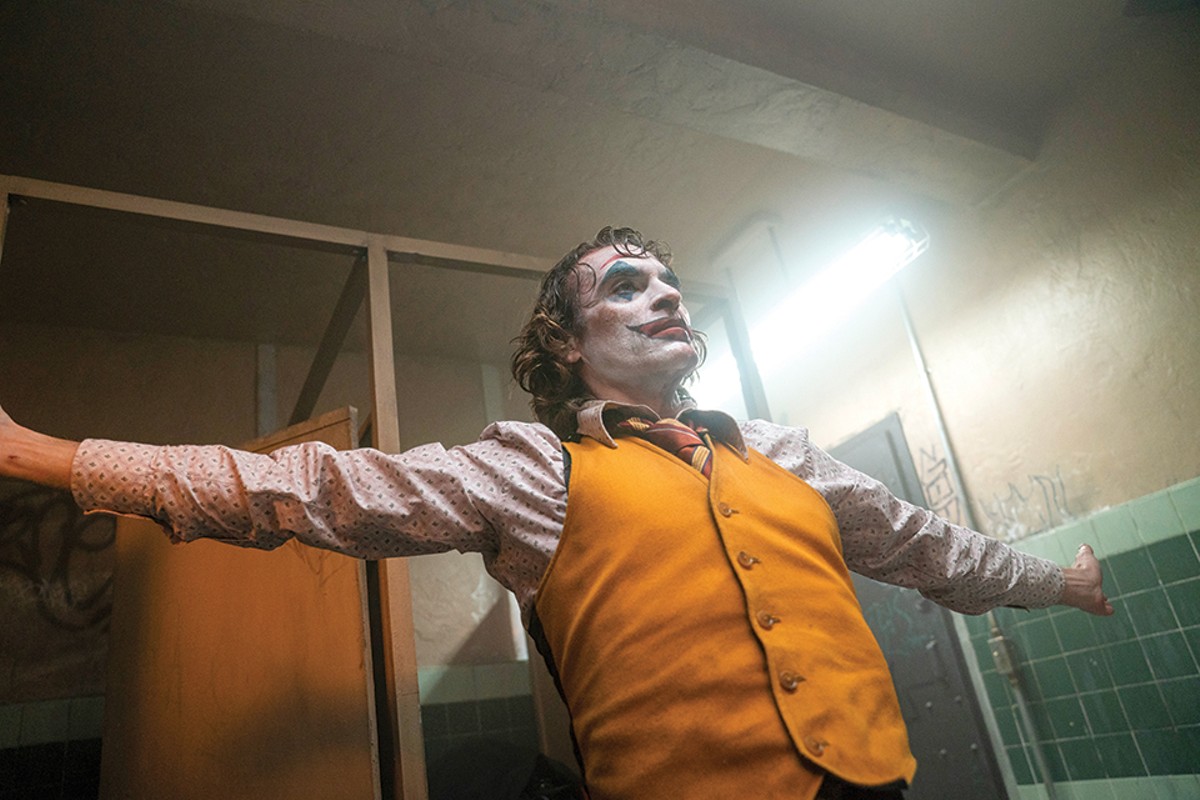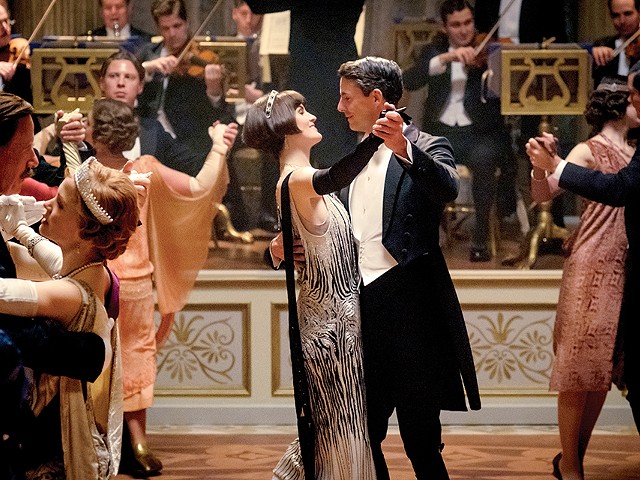Did you ever watch The Godfather and think that it would be a much better film if, instead of having Michael Corleone struggle with the responsibility of living in a crime family, it was about Robin the Boy Wonder trying to decide if he wanted to stay in the Teen Titans? If that line of thinking strikes you as unlikely or irrelevant or — let's be blunt — just plain stupid, then I'm afraid Todd Phillips' Joker is not for you.
Joker arrived in theaters carrying a substantial collection of baggage, from speculation about its potential to incite violence to director Todd Phillips' self-pitying and semi-articulate remarks about his inability to make comedies in our contemporary cultural climate. (My only previous exposure to Phillips' work is The Hangover, but I won't expect any social movement to take the blame for that profoundly witless mess.) These concerns prove to be largely irrelevant. Whatever expectations one might have had, Joker doesn't rise to them. It's a silly, self-indulgent film whose pretensions outweigh its modest ambitions.
As you've probably heard, Joker is the backstory of the already overexposed Batman villain, here named Arthur Fleck (Joaquin Phoenix), a mentally unstable man working as a party clown in a hellish metropolis of garbage strikes, street crime and political unrest. He's already clearly disturbed, but a series of violent events and personal losses push him over the brink. Narrative details are somewhat fuzzy (Phillips is very fond of exposition by way of photographed journals, letters, news stories and other oriented items without actually allowing for more than a few words to be read), but roughly 75 percent of the film is a beat-for-beat imitation of the structure of Martin Scorsese's Taxi Driver, presented in the pompous and self-important shorthand style of a comic book. The remainder is a variation on Scorsese's The King of Comedy, here represented by Robert De Niro as a shallow talk show host who serves as a frequent subject for Arthur's show-biz fantasies. (There are also two additional but unnecessary subplots, the first a completely incoherent thread about angry protesters wearing clown masks, which I'm tempted to regard as the director's addled take on the antifa movement, and the second a nod to the fanboys by depicting the murder of Bruce Wayne's parents for the umpteenth time).
The problem with Phillips' wholesale mimicry of Scorsese is that there's nothing connecting the beats, no attempt to provide a narrative to match them. You may recognize the reference points (De Niro's gun-to-the-head gesture from the climax of Taxi Driver is made by a neighbor who may or may not be interested in Fleck, for no apparent reason) but they're nothing more than a check-off list of plot points. The film plays like a two-hour-long trailer, showing off its brasher moments while carefully withholding the details that hold them together.
Much has been said about Joaquin Phoenix's performance, but this too is stronger on self-conscious showmanship that on substance. Phoenix has evolved into one of the finest contemporary actors, but Joker's choppy style reduces his role to a catalog of flamboyant tricks and tics. He laughs, contorts himself, bangs his head against the wall and busts clownish dance moves with an excess of energy, but if you're looking for a clue to the character behind all the frenzy, you're out of luck.
I'm tempted to call Joker an ambitious film, especially in its technical details, but much of what looks like ambition is merely a combination of ersatz and excess masked in edginess, from the retro design (vaguely reminiscent of the 1970s, even using that Saul Bass-designed Warners' logo, but scenes near the end reveal that it's actually set in 1981) to the dark but choppy musical score by Hildur Guðnadóttir. Whatever thought might have gone into these elements has been forced through the sieve of Phillips' barely developed story and delivered with the finesse of a gorilla firing a T-shirt cannon. For all its pre-release bluster, it's a lazy film — even by the standards of comic book movies — a half-baked piece of juvenilia hoping to coast on an undiscriminating fan base and the reputation of a far greater film from four decades ago.






